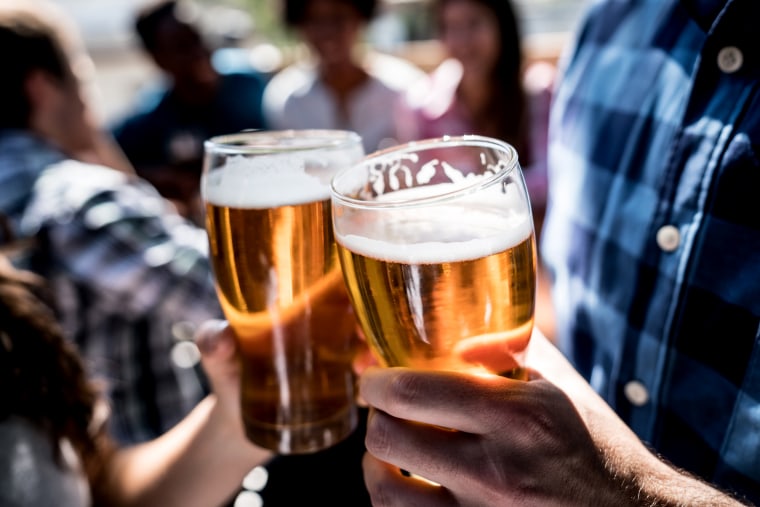Americans who binge drink have reached new levels of over-consumption: A report published Thursday finds that binge drinkers have significantly increased their alcohol intake in recent years.
The report by the Centers for Disease Control and Prevention analyzed trends in binge drinking from 2011 to 2017 and found that overall rates fell slightly, from 18.9 percent to 18 percent.
But those who do report binging are imbibing more than before.
According to the findings, the average number of drinks consumed by binge drinkers per year increased from 472 in 2011, to 529 in 2017. Of note, those numbers are thought to be substantial underestimates because the analysis relied on reports from the drinkers themselves.
Binge drinking is defined as five or more alcoholic beverages on one occasion for men and at least four for women.
The largest increases were found among white people and people with lower income and education levels. Although men were more likely than women to engage in binge drinking, increases were seen in both sexes.
Notably, the rise in binge drinking wasn't seen in college students; rather, it was in adults over age 35.
In 2017, binge drinkers ages 35 to 44 consumed a high of 593 drinks per person, up from 468 in 2011. Adults ages 45 to 64 had a smaller, but similar, increase.
The research adds to a growing body of evidence suggesting that alcohol is becoming more of a problem among older generations. A study released last summer found one in 10 people over age 65 engaged in binge drinking, which can increase the risk for falls and interact with medications for chronic diseases.
The health implications of excessive alcohol intake are significant. A 2018 study found more than five alcoholic beverages a week could raise the risk of stroke, heart disease and aneurysms. And the CDC said one in 10 deaths among U.S. adults is from over-consumption of alcohol.
The CDC also reported that by far, the largest increase in excess alcohol consumption was among people without a high school degree: 942 drinks binged per person in 2017, up from 646 in 2011.
There were also state-by-state differences, with the least amount of drinks binged in Massachusetts, 320 drinks per person, and the highest in Wyoming, at 1,219 drinks per person. Although the report didn't explore the reasons for either the increases or the disparities, researchers address what could be done to reverse trends.
"Evidence-based prevention strategies, such as regulating the number of alcohol outlets in a local geographic area, could reduce binge drinking and related harms," the study's authors wrote.
Government guidelines recommend that women have no more than one alcoholic drink a day and that men have no more than two.
Follow NBC HEALTH on Twitter & Facebook.


